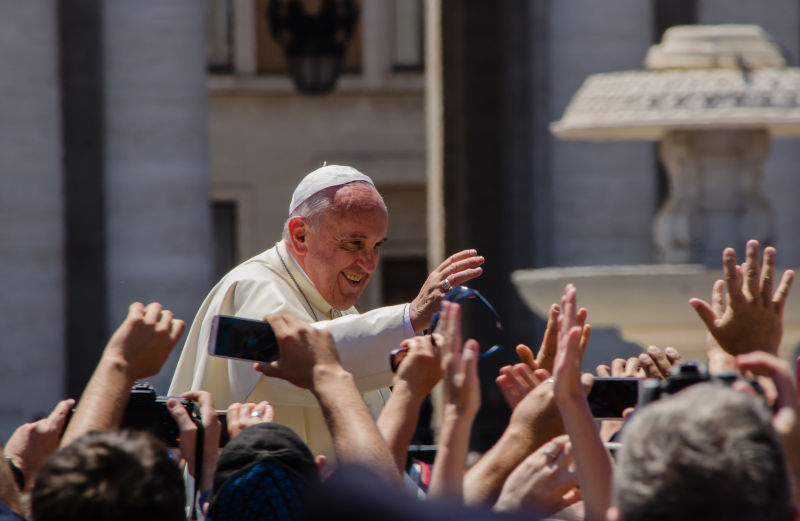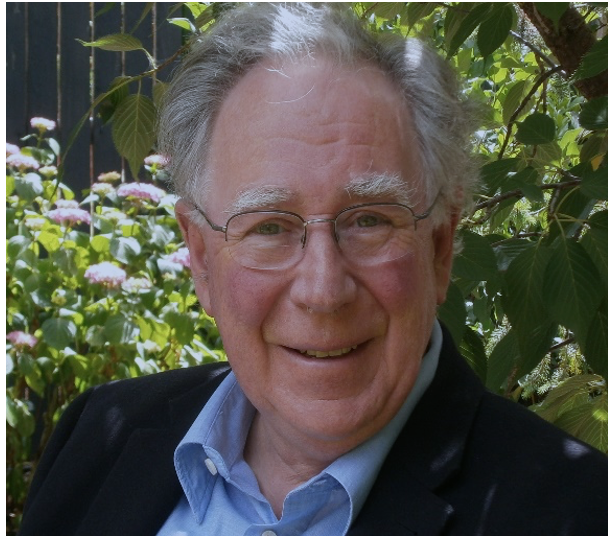Could Pope Francis provide some hope for peace in the Middle East?
December 16, 2023
I really didnt want to write this article; Id rather be saying something about the theological meaning of Christmas. Much safer.
But John Menadue wrote to me last week with a challenge: It may look too dramatic, but it would be highly symbolic if the Pope went to Gaza to celebrate Mass on Christmas day Perhaps he could be accompanied by leading Jewish and Muslim clerics. It would shock the world. Could you write it?
Too easily seduced, I foolishly agreed to venture with my very limited knowledge into what is a highly complex geopolitical-religious situation!
First, some facts: at age 87, Pope Francis is not in good health. Second, church hard-heads would be weighing-up the politics. The Vatican has been a strong, continuing supporter of the Palestinians, while also building good relations with the Jewish faith and maintaining diplomatic relations with Israel. And always lurking in the background is the Holocaust and long history of anti-Semitism.
There is also a real sense in which grand gestures will not solve the complex issues behind the Israeli-Palestinian conflict. Many conscientious and thoughtful Jews and Muslims are profoundly aware of the conflicted history theyve inherited and the scriptural texts that encouraged a religiosity of revenge: Show no pity; life for life, eye for eye, tooth for tooth (Deuteronomy 19:21).
The Quran is almost word for word with Deuteronomy: We ordained for them life for a life, an eye for an eye, a nose for a nose, an ear for an ear, a tooth for a tooth (5:45). But the Quran adds a peaceful clause: Whoever gives [up his right to revenge] it is an expiation for him.
As the psalmist (and bass baritone) ask in Handels Messiah: Why do the nations so furiously rage together, and why do the people imagine a vain thing? (Psalm 2:1). The prophet Isaiah simply says: All we, like sheep, have gone astray, we have turned evry one to his own way (53:6).
Isaiah also suggests an answer to war and revenge when the counter-tenor sings of the redemptive life of Gods faithful servant: He was despised and rejected of men; a man of sorrows and acquainted with grief. He gave His back to the smiters, and His cheeks to them that plucked off the hair: He hid not His face from shame and spitting (Isaiah 53:3; 50:6).
This text explicitly foreshadows Jesus teaching: Love your enemies, do good to those who hate you, bless those who curse you, pray for those who abuse you. If anyone strikes you on the cheek, offer the other also (Luke 6:27-29). Here is the true revolutionary and radical core of Jesus theological and moral teaching. Everything else is secondary.
It was the Anglo-French polymath and critic, George Steiner (1929-2020), the son of secular Austrian Jews, who brought home to me the impact of Jesus words. In his wonderful intellectual autobiography Errata (1998), Steiner wrote: Christs ordinance of total love, of self-offering to the assailant, is, in any strict sense, an enormity. The victim is to love his butcher. A monstrous proposition. But one shedding fathomless light. How are mortal men and women to fulfil it? (p.59).
Not that Christians have ever taken Jesus words particularly seriously. We have a long history of Orthodox, Catholic and Protestants fighting each other. The ethic of revenge is deeply rooted in humankind and forgiveness can seem like weakness, especially within an extreme terrorist situation where the lex talionis (revenge) is seen as justified, like George Bushs war on terror response to 9/11.
Only a truly superior statesperson would have shamed and isolated the terrorists by saying We forgive you, accompanied by intelligent and astute diplomatic and political work to isolate them by appealing to the vast majority of sensible, civilised and peaceful Muslims. Sadly, we are not governed by such intelligent political leaders.
The same is true of the church. An example: when the cardinals came together to elect a pope in March 1939 in the face of Nazism, war and the forthcoming final solution, they elected Eugenio Pacelli (Pius XII), a diplomat, when what was needed above all was a prophet, someone who would risk everything for peace and opposition to racism.
Perhaps this where a prophetic gesture by Pope Francis might just break the Israeli-Palestinian cycle of violence. He could travel to the West Bank, or even Gaza for Christmas. Sure, the security implications would be horrendous. But that is precisely what Jesus was saying when speaking of love of enemies.
While there are thugs on both sides of this conflict, there are also an enormous number of Jews and Muslims who are horrified by war and who long for some way of breaking the spirals of violence. A significant intervention from a respected outsider might just create the space for them to speak and act.

